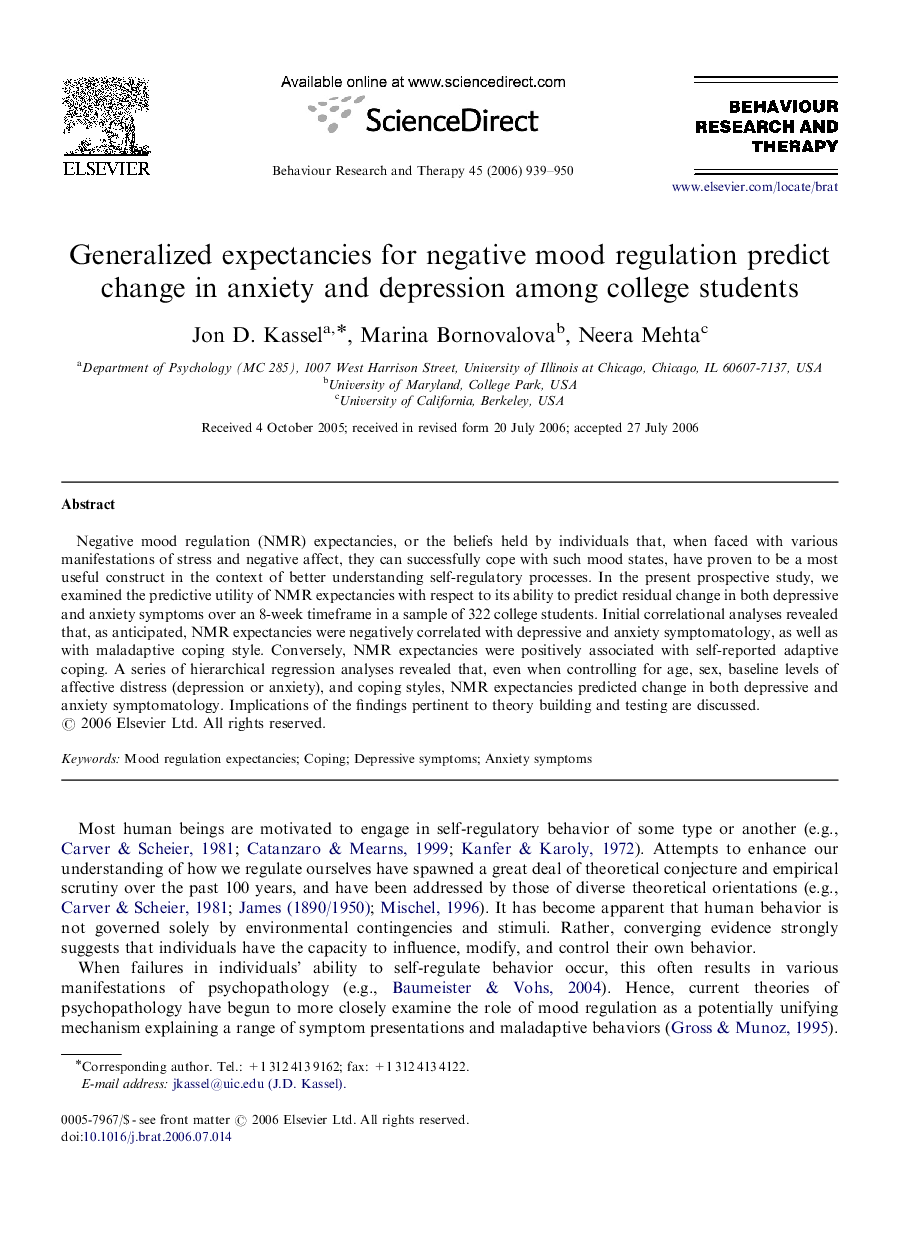| Article ID | Journal | Published Year | Pages | File Type |
|---|---|---|---|---|
| 902334 | Behaviour Research and Therapy | 2007 | 12 Pages |
Negative mood regulation (NMR) expectancies, or the beliefs held by individuals that, when faced with various manifestations of stress and negative affect, they can successfully cope with such mood states, have proven to be a most useful construct in the context of better understanding self-regulatory processes. In the present prospective study, we examined the predictive utility of NMR expectancies with respect to its ability to predict residual change in both depressive and anxiety symptoms over an 8-week timeframe in a sample of 322 college students. Initial correlational analyses revealed that, as anticipated, NMR expectancies were negatively correlated with depressive and anxiety symptomatology, as well as with maladaptive coping style. Conversely, NMR expectancies were positively associated with self-reported adaptive coping. A series of hierarchical regression analyses revealed that, even when controlling for age, sex, baseline levels of affective distress (depression or anxiety), and coping styles, NMR expectancies predicted change in both depressive and anxiety symptomatology. Implications of the findings pertinent to theory building and testing are discussed.
